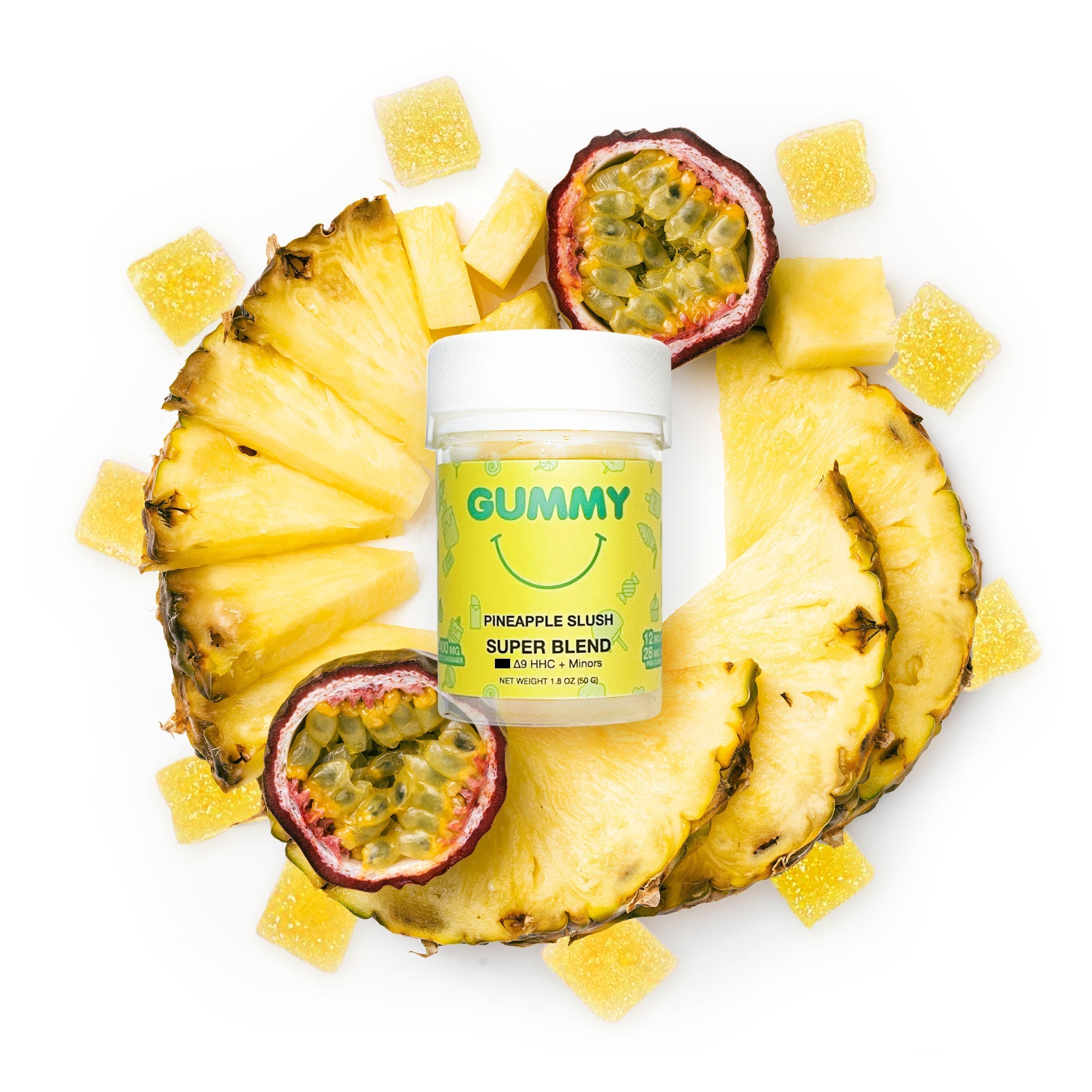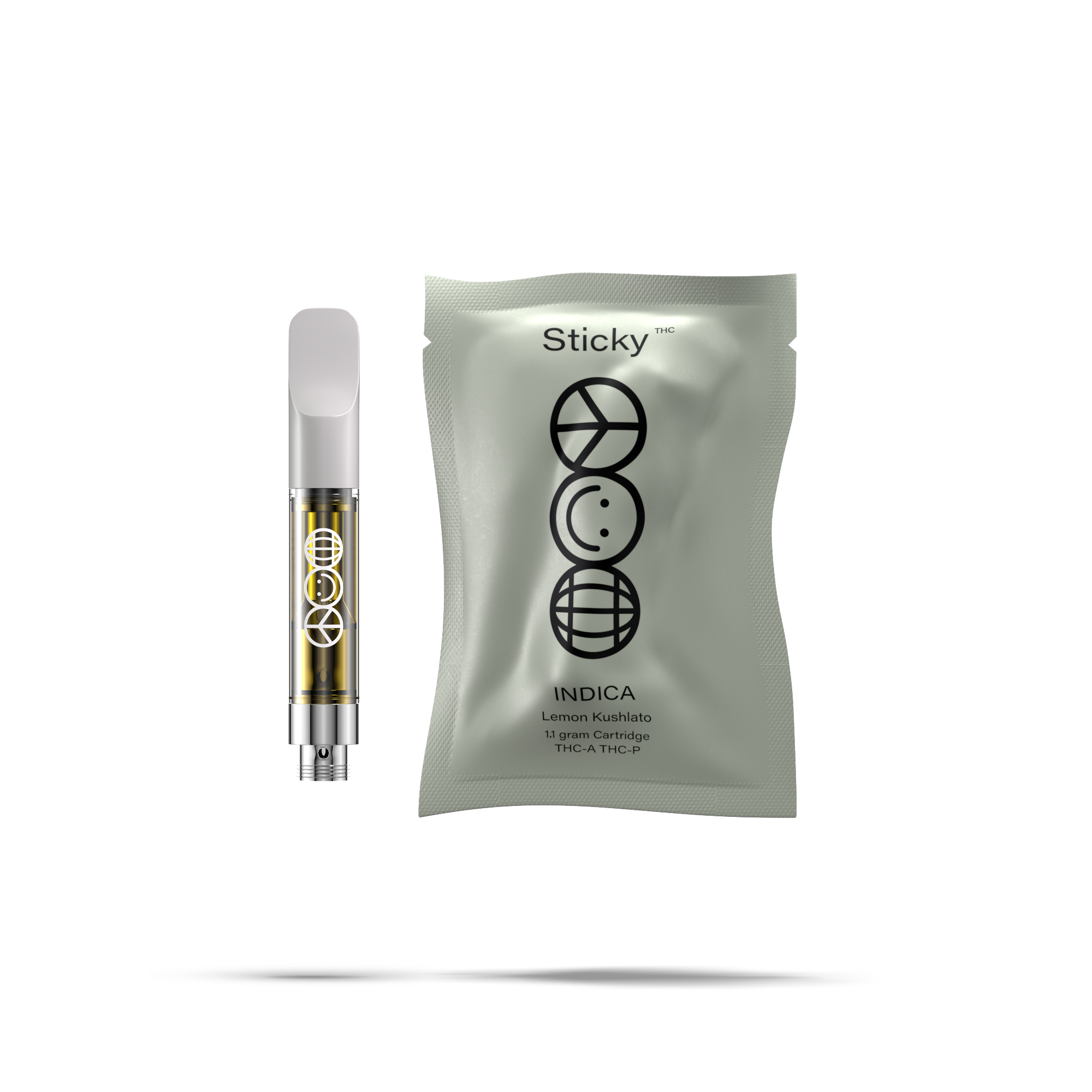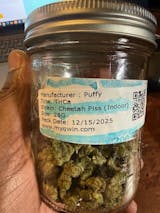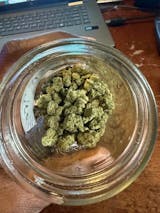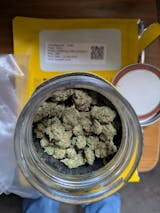This article explores how THCA interacts with your body and its potential health benefits. It also explores THCA effects, consumption methods, dosage guidelines, and safety considerations.
What Is THCA?
Tetrahydrocannabinol acid, or THCA, is a prominent cannabinoid in hemp and cannabis. It is the inactive acidic “precursor” to THC and exists primarily in young, freshly harvested plants. THCA is completely non-psychoactive until it transforms into THC through chemical reactions that occur from heat exposure, such as through smoking, cooking, or vaping. This conversion process, called decarboxylation, elicits powerful THCA effects that make you feel high.
How THCA Interacts with the Body
THCA interacts with your body in different ways depending on how you consume it. Raw, unheated THCA targets specialized enzymes and receptor channels and indirectly impacts your body's endocannabinoid system (ECS) to unleash its therapeutic properties.
The ECS is a critical system that helps you maintain overall health and balance. It consists of endocannabinoids (natural chemical signals), receptors, and enzymes synergizing to manage essential tasks, including:
- Sleep quality
- Inflammatory processes
- Emotional health
- Hunger
- Pain sensitivity
- Temperature regulation
Unheated THCA doesn't have a strong affinity (liking) for cannabinoid receptors like THC does. Instead, it indirectly boosts the ECS by increasing levels of anandamide, an endocannabinoid that helps balance your mood, appetite, and pain perception.
Once heated, decarboxylated THCA, or THC, binds with great strength to CB1 receptors in your brain and nervous system. This process elicits psychoactive effects.
Potential Health Benefits of THCA
THCA research is still emerging. However, preclinical and observational studies show promising benefits, such as anti-inflammation, nausea relief, and neuroprotection. THCA may also help reduce spasms and combat cancer cells.
- Anti-Inflammatory Effects: THCA exhibits strong anti-inflammatory properties, potentially helping conditions like arthritis, inflammatory bowel disease (IBD), and Crohn’s disease. By reducing inflammation, THCA can alleviate chronic pain and improve mobility.
- Nausea Relief: THCA appears effective in reducing nausea and vomiting, making it valuable for patients undergoing chemotherapy or those experiencing illness-related queasiness.
- Neuroprotection: THCA’s neuroprotective qualities may support brain health, slowing the progression of neurodegenerative diseases such as Parkinson’s, Alzheimer’s, and Huntington’s.
- Anti-convulsant Properties: THCA may reduce muscle spasms and seizures in conditions like multiple sclerosis and epilepsy, similar to CBD’s effects.
- Cancer Cell Inhibition: Early research suggests that THCA may slow the growth of certain cancer cells, including prostate cancer, offering hope for future oncological applications.
Applications of Decarboxylated THCA (AKA THC)
Heated, or decarboxylated, THCA unlocks another layer of potential benefits alongside its psychoactive properties. Here’s what THCA’s activated form, THC, can do:
- Sleep Support: THC can promote deeper, more restorative sleep and reduce the time it takes to fall asleep for people dealing with insomnia issues.
- Pain Relief: THC interacts with pain receptors to help reduce chronic pain, like migraines and nerve discomfort.
- Anti-nausea: THC has FDA approval for treating nausea and vomiting caused by chemotherapy, with medications like dronabinol (Marinol) and nabilone (Cesamet).
- Stress and Anxiety Relief: THC’s mood-enhancing effects in low doses, though it’s important to manage doses to avoid overstimulation.
- Appetite Stimulation: THC triggers the release of ghrelin, a hormone that activates appetite-regulating centers in the brain and increases feelings of hunger. This effect is especially valuable for patients dealing with conditions like cancer, HIV, or chronic illnesses where appetite loss can lead to severe weight loss and malnutrition.
Common Ways to Consume THCA
THCA is incredibly versatile. Consumption options include unheated flowers, cold-pressed tinctures, vapes, smokable flowers, edibles, and syrups. Let’s explore:
- Raw Consumption: You can add raw hemp or cannabis flower to your smoothies or salads to preserve THCA in its natural state. This method offers therapeutic benefits without psychoactive effects.
- Tinctures and Extracts: Purchase cold-pressed THCA tinctures to benefit from their raw anti-inflammatory and neuroprotective properties. You can drop these formulas under your tongue for fast THCA effects or mix them into your favorite foods or drinks for a slower onset.
- Topicals: THCA-infused creams and balms are perfect for localized relief from pain and inflammation without affecting your mental clarity.
- Smoking or Vaping: Smoking THCA flower or vaping formulas with THCA gives you a traditional cannabis experience, eliciting a euphoric and relaxing experience.
- Edibles: Make cannabis edibles at home using THCA flower to unlock its powerful psychoactive effects.
- Syrups: THCA syrups are liquid cannabis concentrates made by infusing THCA into a sweet base formula. Depending on the cannabinoids mixed in, these syrups can be non-psychoactive or psychoactive. Add them to drinks or take them straight for a customizable experience.
Dosage Guidelines and Safety Considerations
Determining the right THCA dosage depends on factors like your intended use, tolerance, and method of consumption:
- Therapeutic Use: Therapeutic THCA doses reportedly range from 0.1–1 mg per kilogram of your body weight daily, depending on your specific needs.
- Psychoactive Use: Decarboxylated THCA doses align with typical THC dosages. If you’re new to cannabis, begin with a small amount, such as one puff of flower or 2.5 milligrams of edibles, and gradually increase your desire.
- Combined Use: You can also combine 1 mg of THCA with THC, taken 2–3 times a day, to address pain, seizures, or arthritis effectively.
Speak with a medical professional before determining your dose.
Potential Side Effects of THCA
While generally considered safe, THCA can cause side effects in some individuals. These effects may vary depending on the dose, consumption method, and individual physiology:
- Raw THCA Side Effects: In its unheated form, THCA’s side effects are minimal but may include mild digestive discomfort in sensitive individuals.
- Decarboxylated THCA (THC) Side Effects: Activated THCA’s psychoactive effects can lead to dizziness, dry mouth, and increased heart rate. Overconsumption can lead to heightened anxiety or paranoia.
Conclusion
THCA offers something for everyone, whether you're seeking therapeutic benefits without mind-altering effects or mood, sleep, and pain improvement through decarboxylation. THCA’s versatility and widespread availability make it an exciting cannabinoid worth exploring. Consider adding this impressive compound to your wellness routine.

Elena Schmidt 
Writer
Elena Schmidt is a writer, entrepreneur, and yoga teacher in Austin, Texas. She holds a journalism degree from the University of Miami and spent nearly a decade in editorial and content management for the health and beauty sectors. Today, Elena runs a boutique content marketing agency targeted towards brands that matter. Elena has found her passion supporting industries like plant medicine, cannabis, psychedelics, and wellness. She has written countless articles on these subjects and is passionate about spreading the word to those who need it most.


